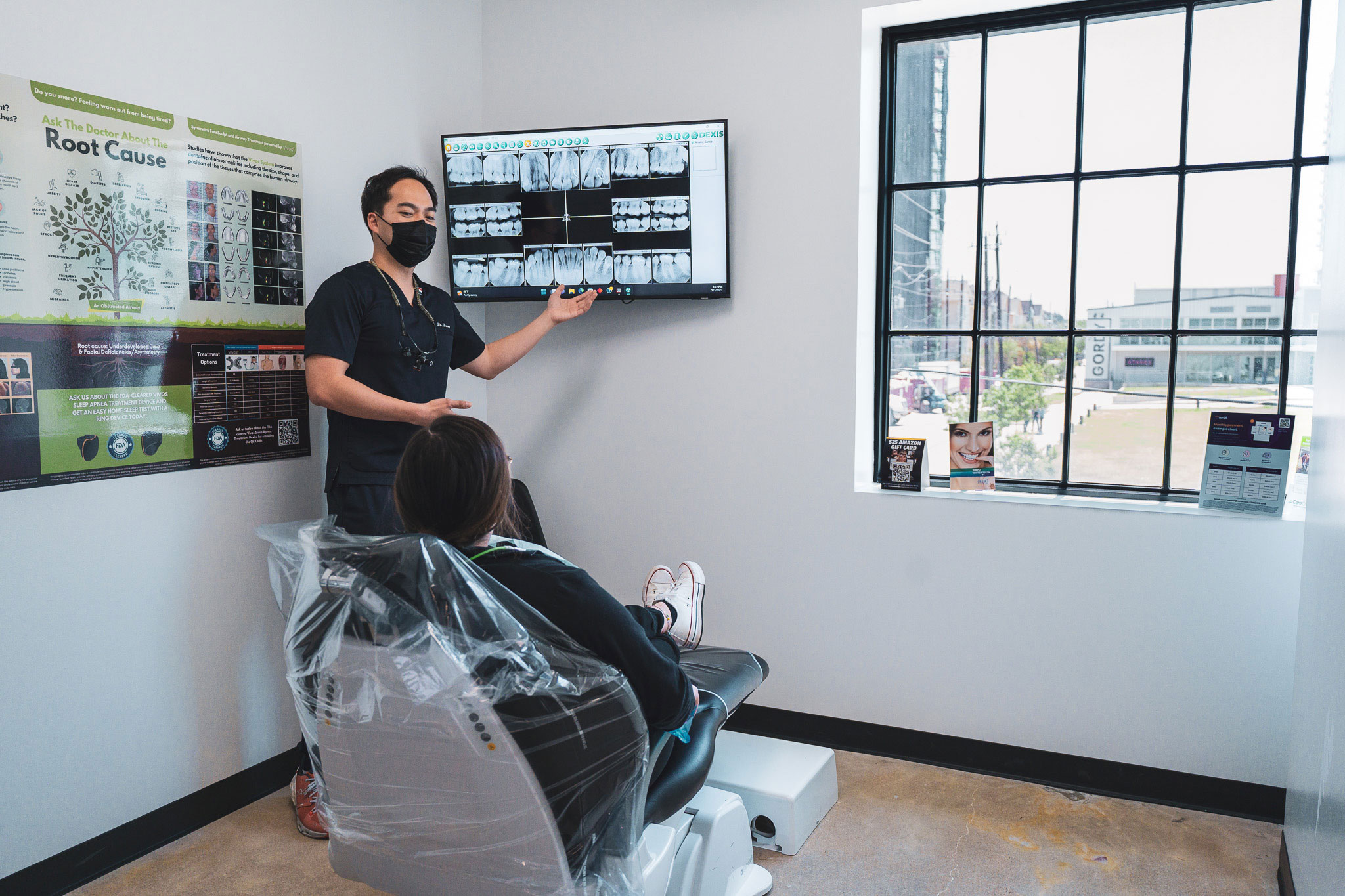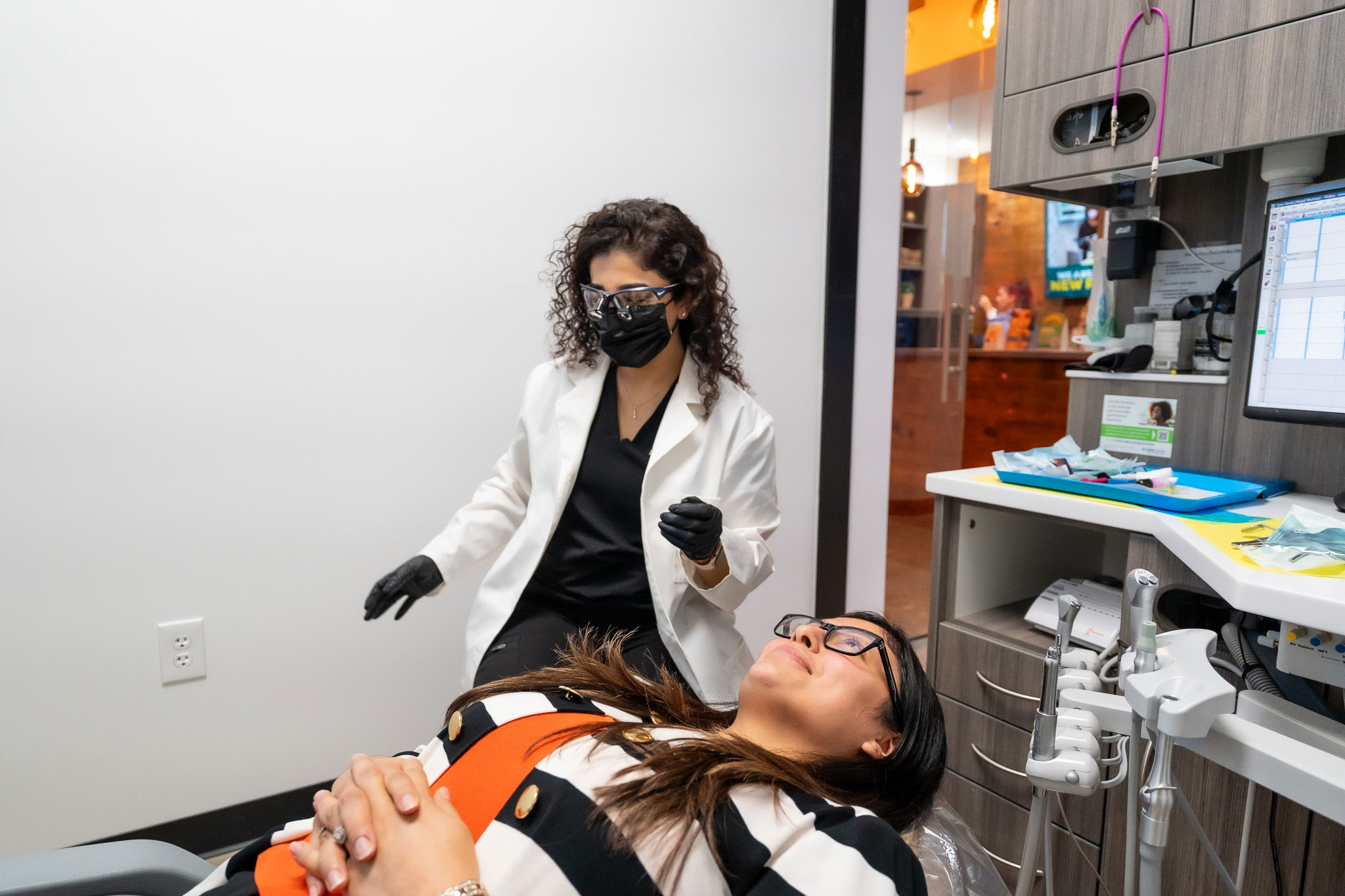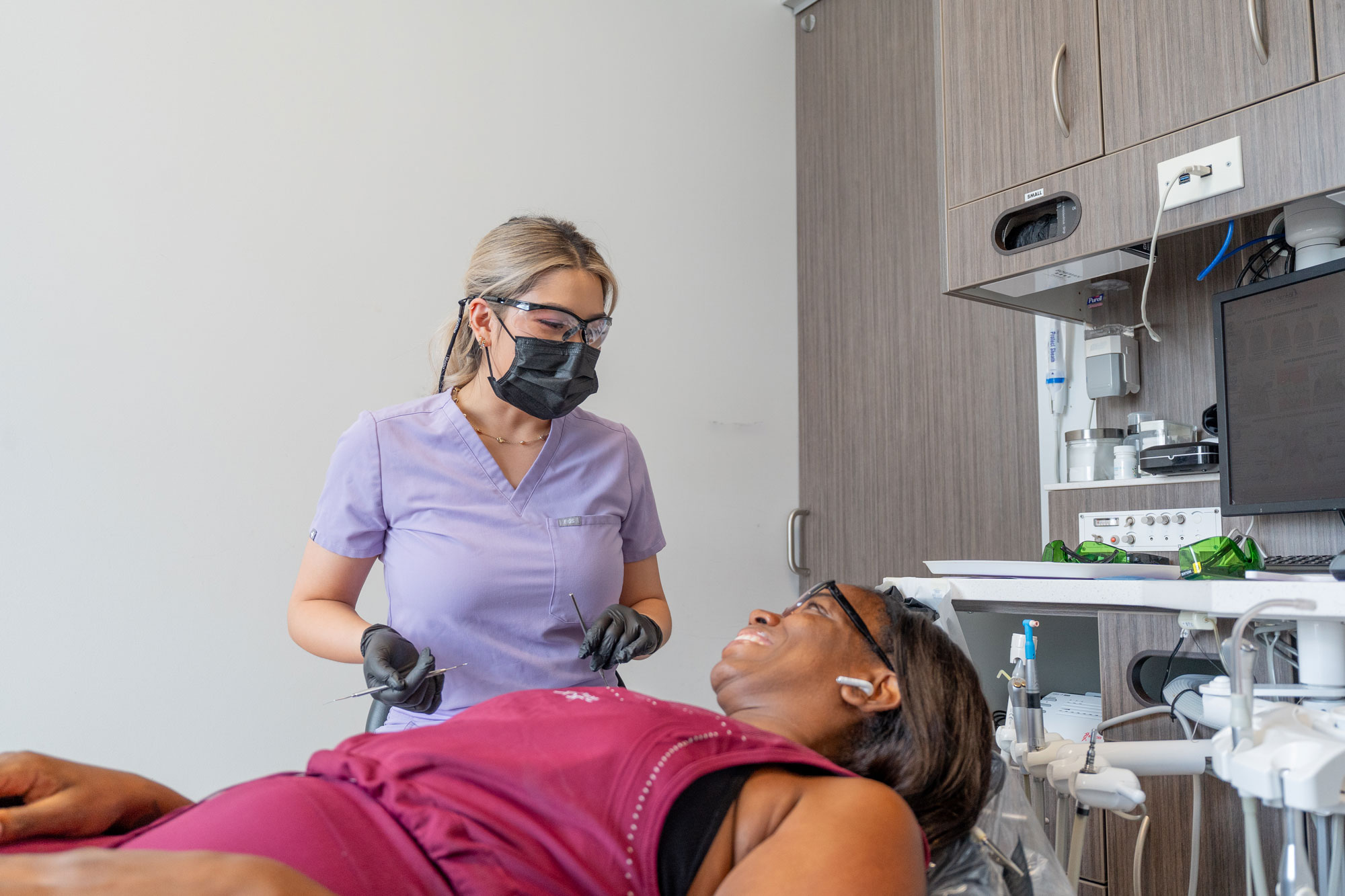An acute wisdom tooth emergency may lead to acute pain, edema in one side, stiffness of the jaw, and impaired nutrition. In the case of impact and infection of wisdom teeth, immediate professional assistance should be received to avoid the development of further complications and to save adjacent teeth.
In order to minimize discomfort and recovery time, competent dentists use cutting-edge procedures to properly remove or treat troublesome wisdom teeth. In order to guarantee full healing, post-procedure advice includes follow-up exams, pain management techniques, and good dental hygiene.
Prompt action not only reduces pain but also protects the integrity of the jawbone, avoids systemic infection, and helps patients keep a confident, healthy smile.
The Importance of Emergency Wisdom Tooth Removal
When the pain is severe, searching for emergency wisdom tooth extraction near me will help you quickly locate nearby dental clinics for immediate treatment. Emergency care decreases pain and eliminates the transmission of infection.

The patients who are in need of swelling or gum infection usually search for emergency wisdom tooth removal near me in order to get quick and efficient help. Local dental practitioners will be able to evaluate the situation and prescribe the most appropriate course of action immediately.
Most of the time, the emergency removal of wisdom teeth is needed because the tooth would be severely affected or infected. Extraction of the affected tooth will aid in alleviating pain and preserving oral health in general.
The dental care of residents with sudden dental pain may be trusted to the emergency wisdom tooth removal in Houston services to provide professional and effective help. Houston dental clinics have the latest technology to attend to the emergency cases.
When one requests emergency wisdom tooth extraction in Houston, persons will be confident that the process is conducted by skilled dentists and is performed with accuracy and attention. Appropriate methods of extracting reduce pain and cause quick recovery.
An experienced emergency dentist is aware of the stressful sudden tooth pain and takes care of it immediately. They aim at alleviating pain in the shortest time possible, avoiding any additional harm to their teeth.

In the extreme cases of acute inflammation or infection, an emergency dental hospital may offer holistic treatment. These centers are ready to take care of more complicated dental cases using sophisticated gadgets and well-trained personnel.
A qualified emergency tooth dentist examines the state of the wisdom tooth and decides whether to extract it or otherwise. Early diagnosis will guarantee successful pain management and painless recovery.
In cases where there is no time to lose, same day emergency dental services near me provide urgent appointments to an emergency case. Same-day care assists patients in returning to a state of comfort within a short period and avoiding the exacerbation of complications.
A wisdom tooth complication is an emergency that needs to be ignored, as it can cause serious infections and long-lasting pain. Either you require an urgent wisdom tooth extraction around my location or you require the services of a known Houston emergency dentist, a quick treatment guarantees you good health and peace in the long run.
Severe tooth pain, gum swelling, and fever are warning signs indicating the need for immediate dental abscess emergency care services. Being fast is beneficial in preventing the spread of the infection as well as safeguarding the oral and general health.
Emergency care also consists of a complete examination, drainage if required, and specific medications to eradicate the illness. For follow-up restorative procedures like crowns or root canals, which restore dental function and appearance, dentists offer professional advice.
Patients who receive early professional assistance have a lower chance of developing systemic issues, heal more quickly, and feel more comfortable and confident about maintaining their oral hygiene in daily life.

Fast Emergency Dental Abscess Treatment in Houston
Dental emergency tooth abscess treatment near me in the form of tooth emergencies is required to drain the infection and take away severe pain. In the absence of the prompt treatment, a tooth abscess may cause severe complications in the surrounding tissues.
The emergency dental abscess treatments houston can be relied on by patients who have sudden swelling and throbbing pain. Dental workers in Houston adopt modern methods of infection management and comfort restoration.
In the event of unbearable pain, it will be worthwhile to find an emergency dentist office near me so that you can be attended to in good time. Early access to professional care minimizes the danger of irreparable damages to the teeth in the long run.
Searching for reliable emergency dental services allows patients to receive immediate care for abscesses, broken teeth, or sudden infections.These clinics are well set up to attend to emergency dental cases carefully and accurately.
Dental emergencies do not follow a schedule, which is why finding emergency dental open now options are crucial. The clinics that have longer working hours are a source of relief when the regular offices are close.

Comprehensive Emergency Dental Care Houston
Dental pain over the weekend is a stressful affair but having an emergency dentistry means that you do not need to wait to be attended to on the weekdays. The availability of Saturdays is used to contain infections before it deteriorates.
The affected tooth may have to be removed immediately in the advanced cases. When you search emergency tooth extractions near me, you get in touch with the clinics that are willing to carry out the extractions in a safe and effective manner.
In case of unexpected dental issues over the weekend, patients may require an emergency dentist open on Sunday to provide immediate care.Patients have a sense of serenity and instant relievals through Sunday services.
Professional emergency dental caredeals with diagnosis and control of infections and pain management within a short period. The patients will get specialized treatment plans that will help them get back on their feet faster as a result of experienced dentists.
A postponed course of treatment in tooth abscess may lead to severe health and long-term pain. Regardless of whether you require using dental emergency tooth abscess or emergency dental open now to find out the best care available or not, emergency care will be right and will yield the best results in terms of oral health stability over time.
Extreme pain in teeth, swelling and either hot or cold food sensitivity can be an indication of a deep infection which may need emergency treatment. Searching for an emergency root canal dentisthelps you find fast treatment to relieve pain and save your natural tooth.
Houston emergency root canal procedures are carried out with contemporary methods to guarantee less discomfort and a quicker recovery. After thoroughly cleaning and disinfecting the affected tooth, skilled dentists seal it to stop reinfection.
Post-treatment advice covers pain management, good oral hygiene habits, and follow-up care to preserve long-term dental health. Comfort, function, and confidence are restored when prompt action lowers the risk of abscess formation, tooth loss, and systemic infection.

Choosing an Experienced Root Canal Dentist
Once the pain becomes severe, patients seek an emergency root canal to receive prompt care before the infection worsens. Emergency treatment decreases the chances of getting complications and saves the adjacent teeth.
Any delay in treatment may cause more pain and harm and this is why most patients are searching same day root canal near me services. Same-day procedures are aimed at getting rid of infection fast and getting back to comfort without long queues.
A competent root canal dentist is one who specializes in infected tooth pulp treatment with the preservation of the tooth structure. In case of professional skill, the procedure would be conducted safely and with minimum discomfort.
People who are suffering excruciating pain in their teeth usually turn to a root canal dentist to receive complex treatment. Houston dental clinics have the latest equipment and effective methods to provide effective and comfortable care.

The emergency root canal dentist offers emergency care in case the infection is spreading very fast or the pain is severe. Rapid intervention aids in eliminating the necessity to extract and this contributes to long-term oral health.
Specialized Care from an Emergency Endodontist
An emergency endodontist is specifically specializing in the diagnosis and treatment of the problems in the interior part of the tooth. They are highly trained to provide accurate treatment of complex cases of root canals as well as infections.
Dental pain can occur at any time, making it crucial to find an emergency dentist who is available immediately.Long working time and appointments flexibility give a patient the opportunity to be treated without causing wastage of time.
In sudden pains, it is best to locate an emergency dentist open now so that he or she can be evaluated and treated immediately. This can be prevented by acting fast to ensure that the infection does not spread and the recovery time is shortened.
An emergency dentistwith trust can provide full emergency dental treatment such as root canal treatment and management of infection. Houston, professional care allows patients to get prompt solutions to serious cases of dental issues.
Neglecting the bad pains in teeth may cause additional complications and even loss of teeth. You may be in need of an emergency dentist root canal, or you are in need of the help of an experienced emergency endodontist, but one way to guarantee you will be relieved soon and maintain a stable oral health is to seek immediate treatment.





